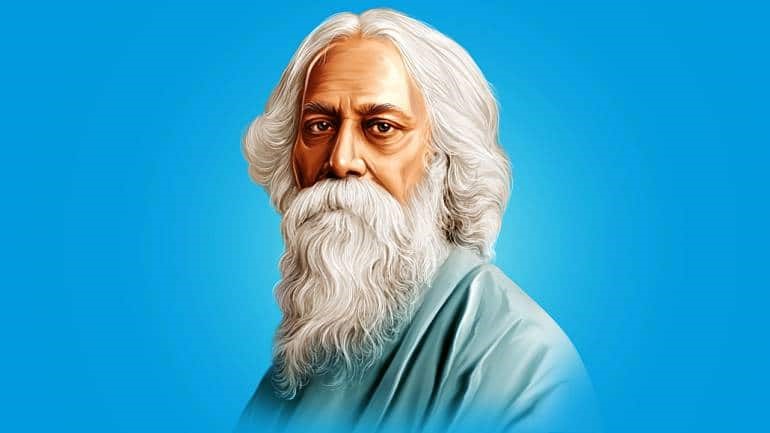WHY we remain indebted to Rabi Thakur?

ON the death anniversary of Rabindra Nath Tagore, the composer of the national anthems of India and Bangladesh, scholars agree his contributions to literary and other spheres remain unparalleled. The bard, considered as incomparable genius for Gitanjali, Chitto Jetha Bhayshunyo, Dui Bigha Jomi, Kabuliwala, Postmaster, Broken Nest, Bhikharini, Conclusion, Jibito O Mrito, other short stories, novels, articles and dance dramas, has enriched all literary genres. The National Anthem of Sri Lanka was inspired by one of his works. Surviving back to back deaths in his immediate family, the first non-European and first lyricist to bag Noble prize in literature Rabi Thakur anglicized as Rabindra Nath Tagore, died at 80, on August 7, 1941 at Jorasanko one week after surgery for a blocked urinary bladder. Dr Jyotiprakash Sarkar and Dr Bidhan Chandra Roy insisted on the surgery against his wish.
He was born and grew up in the same house. He was the youngest child of Devendra Nath Tagore and Sarada Devi. He lost his parents at a young age. His spouse Mrinalini Devi died being 29. She sold her jewelry and Tagore spent almost the entire Noble Prize money ₹ 7 crore 22 lakh on his dream projects including Visva-Bharati. His elder brother’s wife Kadambari Devi, who encouraged his creative activities, three children and only grandson also expired. Of his 5 children, he was survived by daughter Meera Devi, son Rathindranath, his wife Pratima Devi, their adopted daughter Nandini. We see ‘’the combination of personal sorrow and commentary on social and political upheavals in Bengal’. Overcoming all the tragedies, he gave a new lease of life to dispirited persons through his creations. He was source of inspiration to Subhas Chandra Bose, Mahatma Gandhi and other independence activists and was personable, witty. He opposed evil social customs, supported women’s empowerment .He introduced new prose and verse forms and colloquial language in Bengali literature. He reshaped Bengali literature and music as well as Indian art. Bengalis still speak and write in his language consciously or unconsciously. He championed learning the progress in science and technology from the West while introducing Indian culture to the Westerners. In Gitanjali for which he won Noble Prize in 1913, he has given new meanings to ‘Nation’ and ‘Individual’ beyond their physical existence.
Disatisfied with the prevalent education system, in 1901 Tagore moved to Shantiniketan to his father’s ashram where he launched an experimental school amidst nature. He was for bringing the teachers and the taught closer not in closed rooms. A passionate lover of nature, on July 14, 1928, he initiated Vriksharopana or tree planting fest which became a regular event in Shantiniketan since 1936 to convince people about the necessity of afforestation. He conceptualized Visva-Bharati University in rural Bengal as a bridge between India and the rest of the world. Earlier, he had renounced knighthood conferred by the British Crown to protest the 1919 Jallianwala Bagh Massacre. The lyricist is credited for composing 2,230 songs called Rabindrasangeet. Rabi Thakur, who preferred to call himself ‘’Ami Tomaderi Lok‘’ meaning “I am just one of you”, was a leading social reformist through writings and paintings. The multifaceted personality, influenced by Baul culture and Lalon Fakir, is modern India’s architect. Image courtesy : Moneycontrol




What an amazing writing.Got to know somany unknown facts of Gurudev…loved reading your article